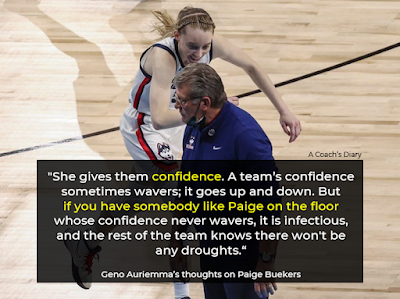Week 24 Devo | Fear Not

Fear is one of the most powerful emotions that we have, and it is one of the worst feelings. Fear can stop you in your tracks, freeze you in place, and keep you from doing what you want to do or need to do to be successful. My first year as a head coach, I would get so nervous and fearful right before tip-off that my fingers and knees would start shaking, and I would want to walk off the court and into the stands to watch the game with everyone else. I would ask myself, “How can I be a coach if I am so afraid to coach?” I am now about to begin my 15th year as a coach. I made it through the fear. I did it afraid until I wasn’t afraid anymore. I still get nervous before almost every game, but it is now a healthy nervousness that is manageable. Through my journey, I learned that courage isn’t the absence of fear. Courage is doing what you want to do or need to do in the face of fear. You can’t wait until you don’t feel fear because fear is always going to be present and trying to stop you...



